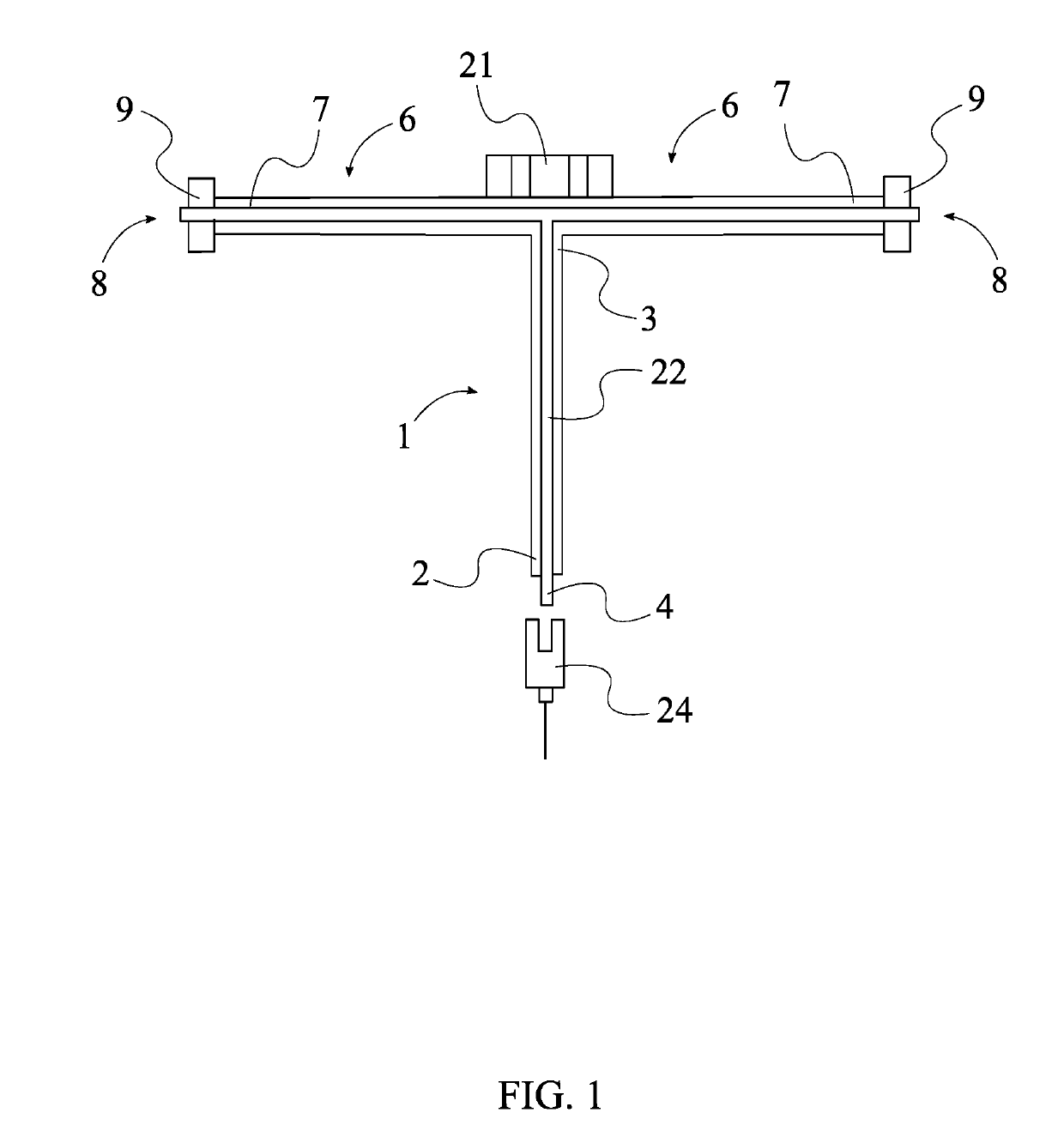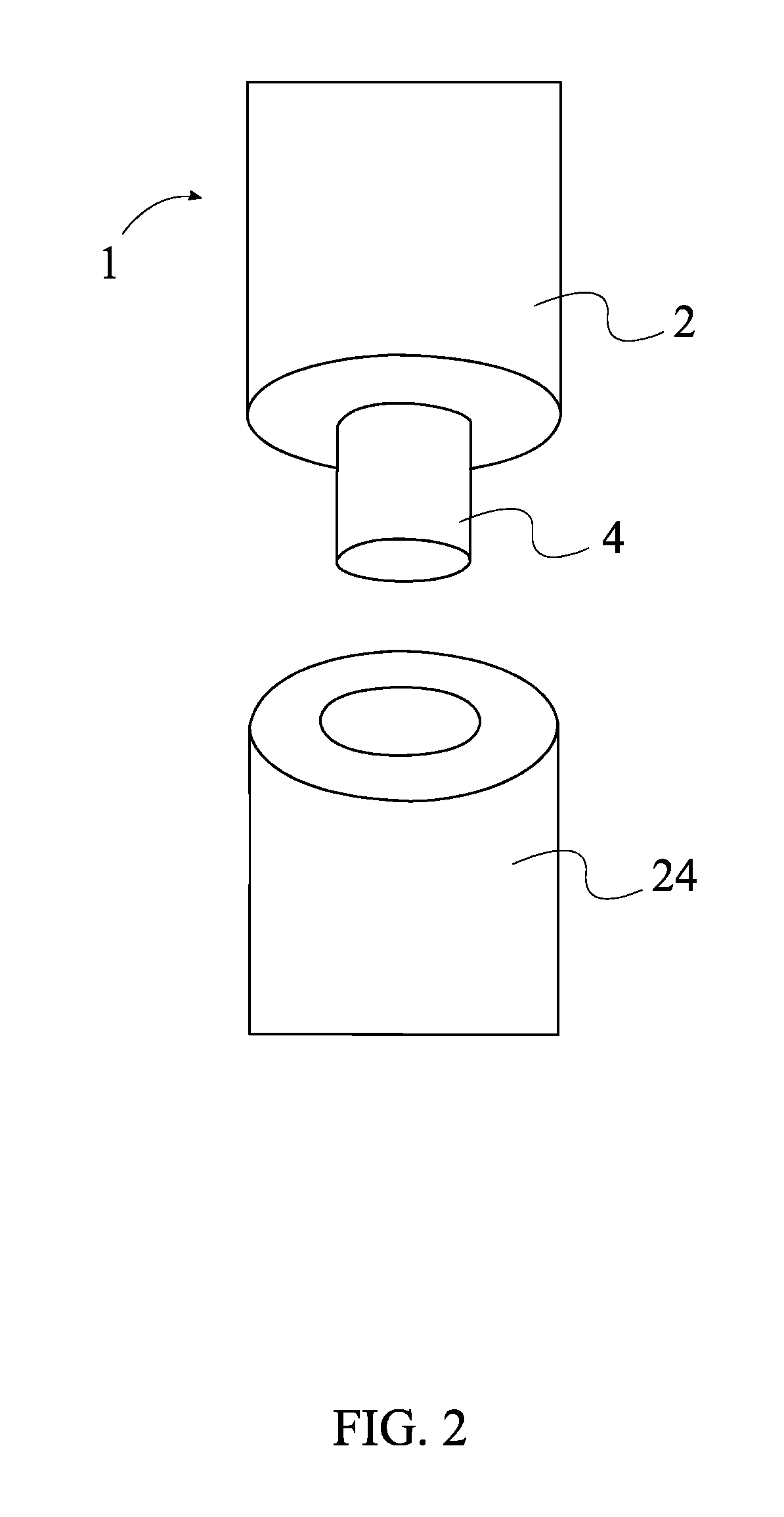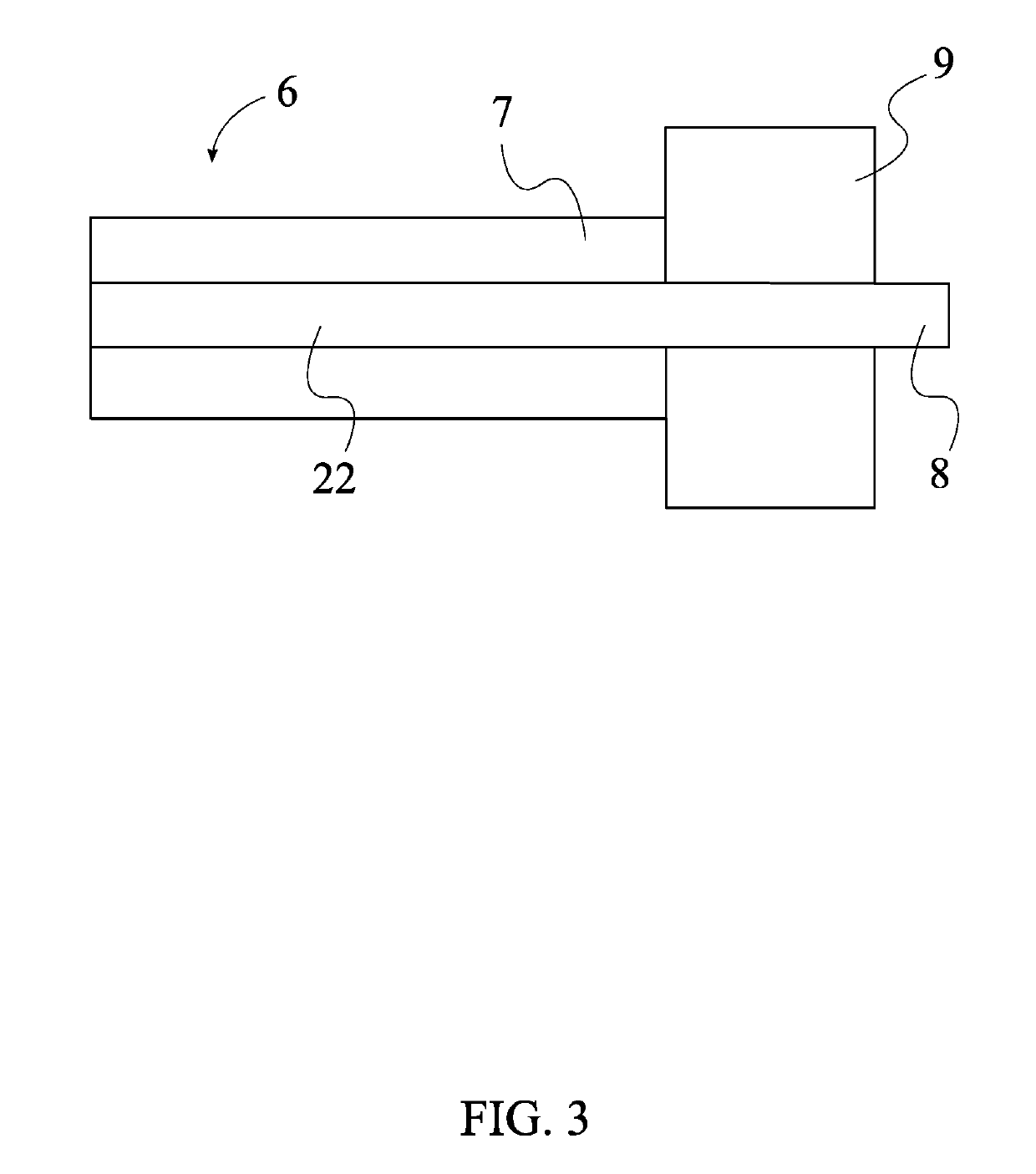Electromagnetic Rotary Motor
a rotary motor and electromagnetic technology, applied in the direction of dynamo-electric machines, dc interrupters, structural associations, etc., can solve the problems of uneven motion and general inefficiency, many motors that utilize electromagnetic induction are inaccessible, and devices have not yet been optimized for general us
- Summary
- Abstract
- Description
- Claims
- Application Information
AI Technical Summary
Benefits of technology
Problems solved by technology
Method used
Image
Examples
Embodiment Construction
[0013]All illustrations of the drawings are for the purpose of describing selected versions of the present invention and are not intended to limit the scope of the present invention.
[0014]The present invention is an electromagnetic rotary motor that is used to convert electrical energy into mechanical energy. The present invention is also configured to utilize minimal electrical power input due to the arrangement of components and the cycle for energy conversion. The present invention comprises a drive shaft 1, an input terminal 4, an annular housing 5, a plurality of brushes 6, and a plurality of electromagnetic (EM) mechanisms 10. The drive shaft 1 is a cylindrical extrusion that rotates about its axis. The input terminal 4 is a connector which provides electrical potential to the plurality of brushes 6 through the drive shaft 1. The annular housing 5 is a ring-shaped enclosure that protects the components of the present invention and helps to arrange the plurality of EM mechanism...
PUM
 Login to View More
Login to View More Abstract
Description
Claims
Application Information
 Login to View More
Login to View More - R&D
- Intellectual Property
- Life Sciences
- Materials
- Tech Scout
- Unparalleled Data Quality
- Higher Quality Content
- 60% Fewer Hallucinations
Browse by: Latest US Patents, China's latest patents, Technical Efficacy Thesaurus, Application Domain, Technology Topic, Popular Technical Reports.
© 2025 PatSnap. All rights reserved.Legal|Privacy policy|Modern Slavery Act Transparency Statement|Sitemap|About US| Contact US: help@patsnap.com



